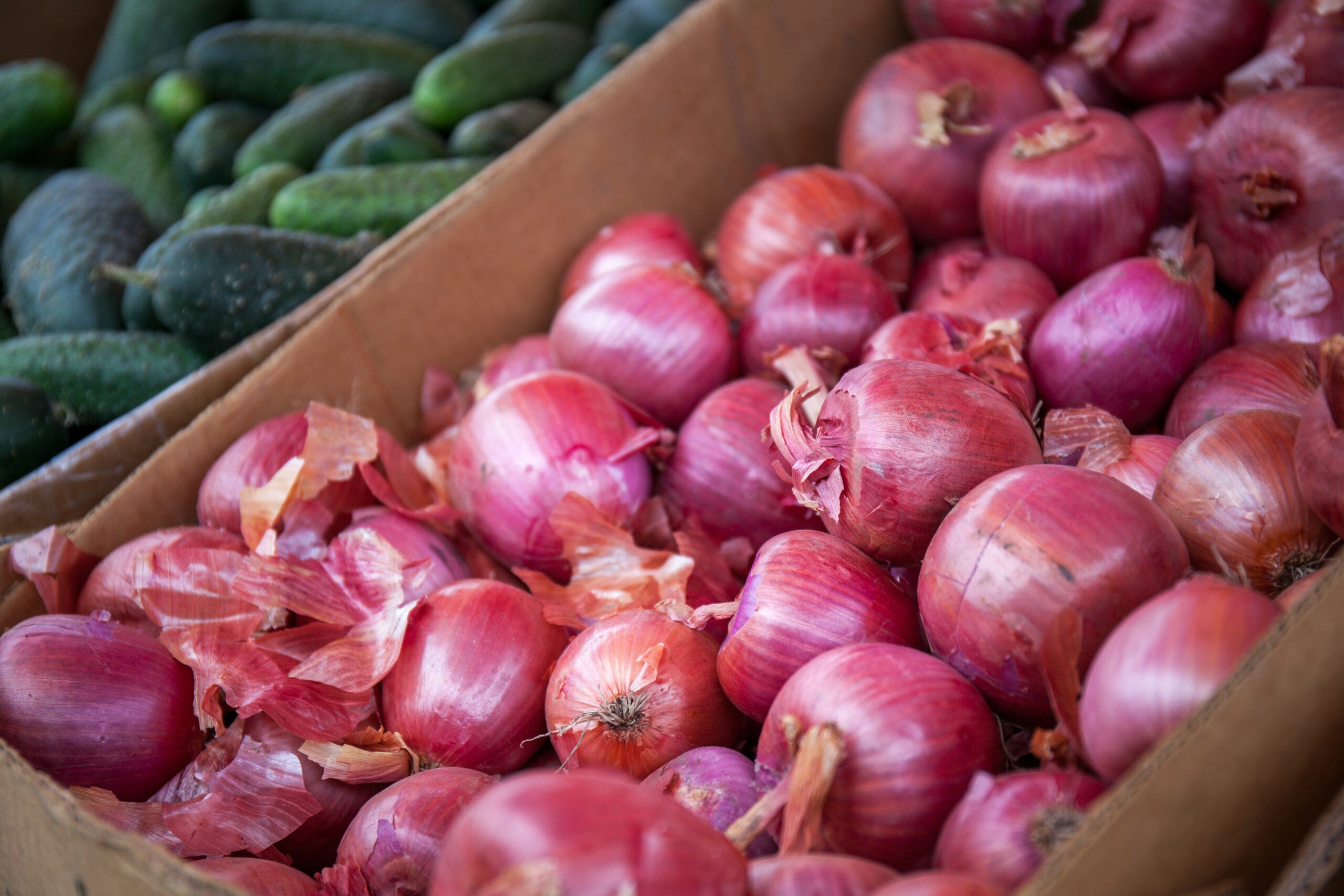Stop Storing Onions in the Fridge: 5 Ways It Affects Their Taste and Best Storage Practices

Storing Onions Properly: How It Affects Their Flavor and Texture
Storing onions properly is crucial for maintaining their flavor and texture, and one common mistake is storing onions in the fridge. While the fridge is often used for extending the shelf life of many foods, it’s not the ideal environment for storing onions. In this article, I’ll explain why storing onions in the fridge can affect their taste and how to properly store them for the best flavor.

The Impact of Cold Storage on Onions
We typically associate the fridge with extending the shelf life of food, and that’s true for many items. However, not all vegetables thrive in cold conditions.
Before you toss your onions into the refrigerator, here are some factors to consider:
Temperature: How Storing Onions in Cold Affects Their Freshness
Onions, like many vegetables, prefer cool, dry environments. However, the cold and damp conditions of the fridge may cause them to break down more quickly. The low temperature can shock the cellular structure of onions, which ultimately speeds up the decomposition process. The natural sugars in onions can turn into unwanted moisture, making them mushy. According to The Spruce Eats, onions are best stored in a dry, cool place, not the fridge.

Humidity: Why Storing Onions in Humid Environments Isn’t Ideal
Fridges tend to be humid, which can cause onions to mold or rot, even if placed in the crisper drawer. The excess moisture in the fridge compromises the onion’s natural texture, leading to soft, mushy spots that affect their taste. This is why ventilation is crucial to maintaining the quality of stored onions. For more tips on food storage and moisture control.

Ethylene Gas and Onions: How It Affects Storage
Onions release ethylene gas, which accelerates their ripening process and leads to quicker spoilage. This gas can also affect other produce sensitive to ethylene, so it’s best to keep onions separated. While ethylene is beneficial for ripening fruits like bananas, it can quickly spoil onions and other vegetables. To prevent this, store onions away from fruits like apples, avocados, and tomatoes, which also produce ethylene. For more information on ethylene and its impact on produce, visit USDA – Agricultural Research Service.
Visibility: Why Keeping Onions Visible Helps Prevent Waste
When storing onions in the fridge, they can be out of sight and harder to reach. Keeping them on the kitchen counter in a basket makes them more accessible and increases the likelihood of using them before they spoil. Having your onions visible on the counter reminds you to incorporate them into your meals, reducing food waste. For tips on reducing food waste.
Texture and Flavor: The Effect of Refrigeration on Onions
Onions are known for their crispness and strong flavor, but storing them in the fridge can cause them to become softer and less pungent. The cool, damp environment not only affects their texture but also dulls their flavor profile. When onions lose their natural bite, dishes that rely on their pungency, such as salads or sautés, may not taste as vibrant or aromatic.
The Best Way to Store Onions
For optimal freshness and flavor, onions should be stored in a cool, dry spot, like a pantry or a well-ventilated cabinet. A mesh bag or basket will allow for air circulation, preventing excess moisture from building up. This type of storage ensures the onions remain firm and flavorful for longer. For storage tips, visit National Onion Association.
A few additional tips:
Check your onions regularly for signs of spoilage, such as soft spots, sprouting, or mold. This will help you avoid using damaged onions in your cooking.
Keep them separate from other fruits and vegetables. As mentioned, onions release ethylene gas, and keeping them apart from other produce will prevent premature spoilage.
Only refrigerate onions if you won’t use them for several weeks. If you’ve cut an onion, storing the leftover portion in the fridge is acceptable, but it should be sealed in an airtight container.
In the end, the goal is to maintain the flavor and freshness of your onions. By storing them properly and making sure they are easily accessible, you’ll enhance the taste of your dishes and avoid wasting food. As much as possible, try to avoid storing onions in the fridge!






